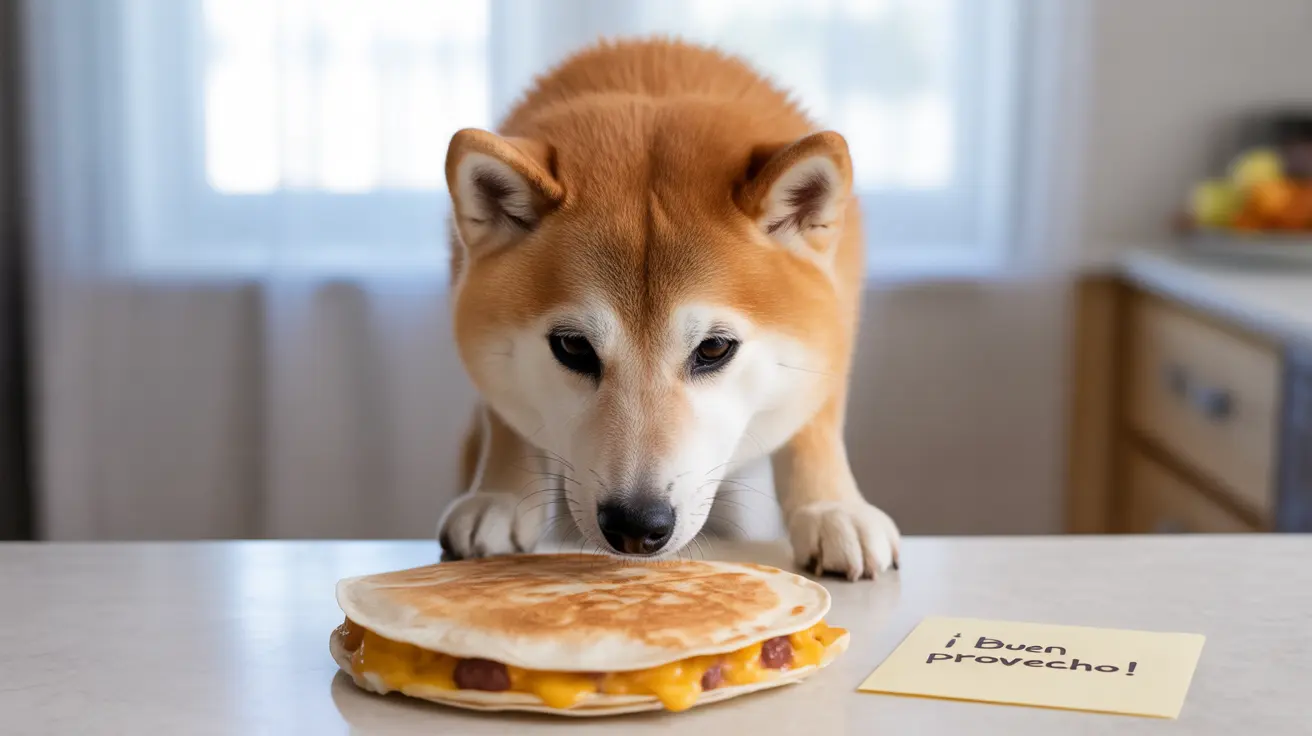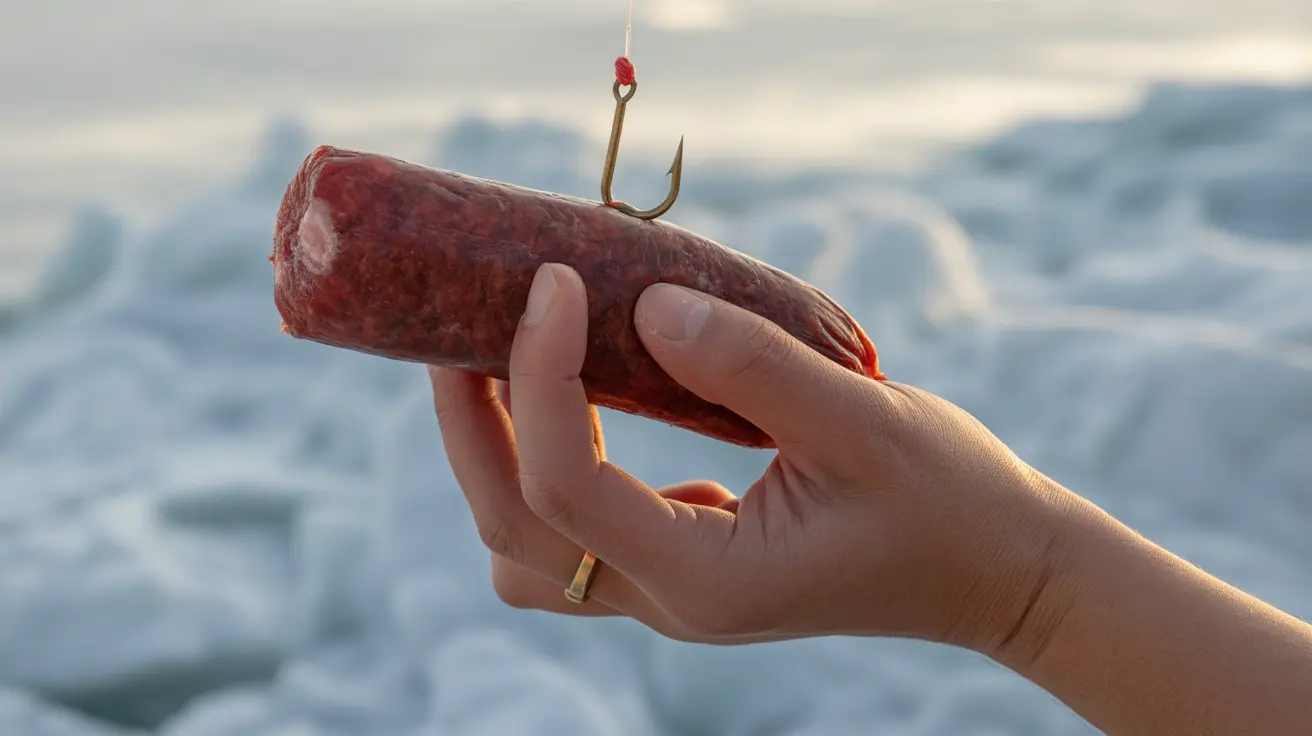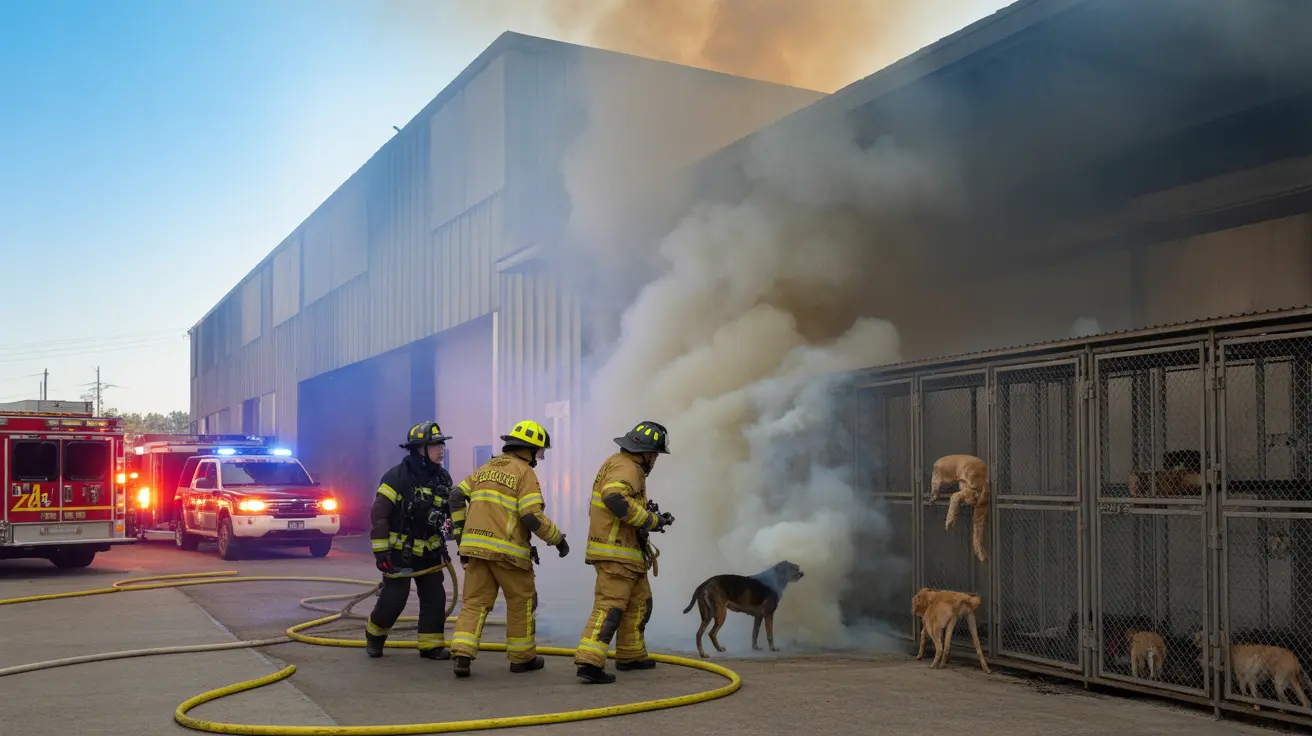Common Quesadilla Ingredients and Their Risks
Tortillas and Dairy Concerns
The base ingredients of quesadillas - tortillas and cheese - already present several issues for dogs:
Tortillas are typically high in sodium and refined carbohydrates. Excessive salt intake can lead to increased blood pressure and potential salt toxicity in dogs. The refined carbohydrates offer little nutritional value while adding unnecessary calories to your dog's diet.
Cheese, while beloved by many dogs, contains lactose and high amounts of fat. Most adult dogs are lactose intolerant, which means consuming dairy products can result in digestive upset, diarrhea, and stomach discomfort.
Dangerous Additives and Seasonings
Modern quesadillas often include additional ingredients that can be toxic to dogs:
- Onions and garlic (fresh or powdered)
- Spicy seasonings and chile peppers
- Processed meats with added preservatives
- Butter or oils used for cooking
Health Impacts on Dogs
Immediate Concerns
When dogs consume quesadillas, they may experience several immediate symptoms:
- Vomiting and diarrhea
- Abdominal pain and discomfort
- Excessive thirst due to salt content
- Gas and bloating
- Lethargy
Long-term Health Risks
Regular consumption of quesadillas can lead to more serious health issues:
- Obesity from excess calories
- Pancreatitis due to high fat content
- Cardiovascular problems from sodium
- Nutritional imbalances
- Chronic digestive issues
What to Do If Your Dog Eats a Quesadilla
If your dog manages to sneak a quesadilla, take these steps:
- Determine what ingredients were in the quesadilla
- Monitor your dog for signs of distress
- Ensure fresh water is available
- Contact your veterinarian if you notice concerning symptoms
- Watch for signs of onion or garlic toxicity
Frequently Asked Questions
Can dogs safely eat quesadillas or are they harmful?
No, quesadillas are not safe for dogs to eat regularly. While a tiny plain bite might not cause immediate harm, the combination of ingredients typically found in quesadillas can cause digestive issues and pose serious health risks.
What ingredients in quesadillas are toxic or risky for dogs?
Onions and garlic are toxic to dogs, while cheese can cause lactose intolerance issues. High salt content in tortillas, spicy seasonings, and fatty ingredients can all pose health risks to dogs.
What signs should I watch for if my dog eats a quesadilla with onions or garlic?
Watch for symptoms like lethargy, pale gums, rapid breathing, vomiting, diarrhea, and weakness. These could indicate onion or garlic toxicity, which requires immediate veterinary attention.
Are there any safe alternatives to give my dog instead of quesadillas?
Yes, offer plain, unseasoned lean meats like chicken or turkey, or stick to commercial dog treats specifically formulated for canine nutrition. Always consult with your veterinarian about appropriate treats for your dog.
How can I handle it if my dog accidentally eats a cheesy or spicy quesadilla?
Monitor your dog closely for signs of digestive upset, provide plenty of fresh water, and contact your veterinarian if concerning symptoms develop. Keep a record of ingredients consumed and the amount eaten.
Remember, while sharing food can feel like a way to bond with your pet, the best way to show love is by providing appropriate, nutritious foods designed for dogs. Keep quesadillas and other human foods out of reach, and stick to veterinarian-approved treats and meals to ensure your dog's health and safety.






